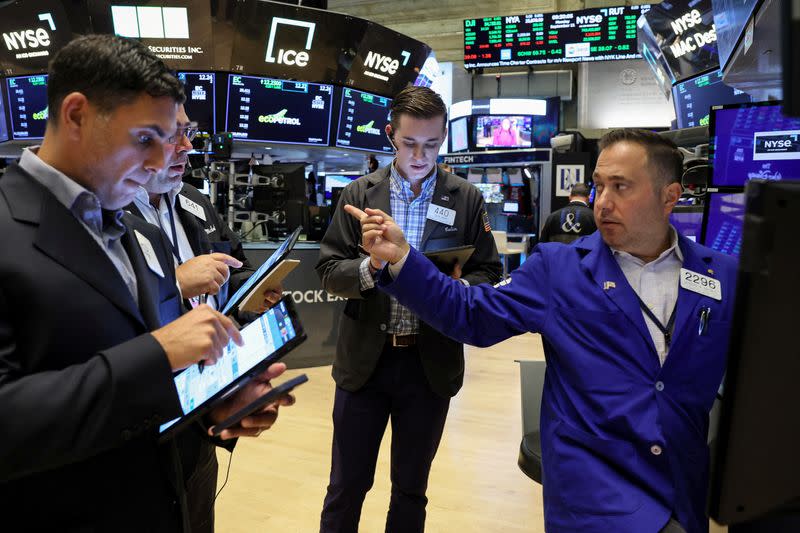Fed meeting comes during historically tough week for US stocks

By Saqib Iqbal Ahmed
NEW YORK (Reuters) - The U.S. stock market could be set for a rocky second half of September, particularly the week after the September 15 monthly options expiration, a Nomura Securities analysis of data going back more than three decades, shows.
The so-called "September Effect," the apparent trend where U.S. stock market returns are relatively soft in September, has been especially acute for stocks in the week after options expiration, according to Nomura.
In 26 of the last 33 years, the S&P 500 Index fell in the week following the September options expiration, with a median drop of 1%, the analysis showed.
This time around, the week will encompass the Federal Reserve's monetary policy meeting, set to conclude on Sep. 20. Investors expect the central bank to hold rates steady at the meeting, but are looking for clues on whether policymakers plan to deliver another increase later this year.
Nomura strategist Charlie McElligott said the weakness may be linked to selling related to the fiscal year-end for mutual funds and tax-related selling by households.
Mutual funds often sell stocks in September ahead of the Oct. 31 tax year-end to make their portfolios look more attractive to investors, a process known as "window dressing," which can weigh on stocks.
Additionally, stocks can come under pressure in September as individual investors may sell to pay their estimated taxes.
The S&P 500 is down 0.9% month-to-date, and investors are bracing for a host of market-moving catalysts in coming days, including Wednesday's report on U.S. consumer prices.
One potential silver lining: when stock rallied for the January-August period, as they have this year, September tends to be positive, according to an analysis by Tallbacken Capital Advisors.
The overall mean return for all 95 Septembers since 1928 is -1.1%, but screening for those 34 years when the S&P 500 index was up more than 10% through August, the stocks gained 0.3% on average in September, the firm's data showed.
(Reporting by Saqib Iqbal Ahmed; Editing by Ira Iosebashvili, Alexandra Hudson)

 Yahoo Finance
Yahoo Finance 